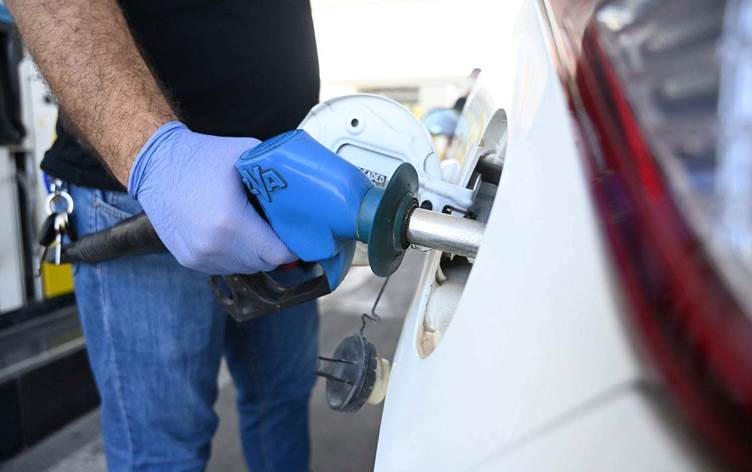ERBIL, Kurdistan Region - Baghdad has started sending 540,000 liters of gasoline daily to the Kurdistan Region, a number which will start doubling in November, the Kurdistan Regional Government (KRG) announced on Monday.
The KRG’s department of media and information in a Monday statement announced that gasoline had arrived to the Kurdistan Region from Iraq on Sunday.
“Baghdad will provide 540,000 liters of gasoline to the Kurdistan Region provinces daily, and this amount will double on November 1, 2021, meaning it will become a million and 80,000 liters of gasoline,” Fatah Rahman, the general director at the ministry of natural resources, said.
Rahman added that the price of the gasoline will be 690 dinars per liter in the gas stations.
Despite reaching a deal in late August, Baghdad did not send any gasoline to Erbil from September 30 to October 23 , causing a supply deficit in the market and making prices spike. The high gasoline prices riled up people, and gas stations often had extremely long queues.
The latest arrangement comes a week after Kurdistan Region Minister of Natural Resources Kamal Atroshi met with Iraqi Oil Minister Ihsan Abdul Jabbar in Baghdad. Atroshi had earlier told Rudaw English that gasoline will be among the main topics of their discussion.
The Kurdistan Region needs around five million liters of gasoline per day, according to Atroshi.
Fuel prices started to increase in the Kurdistan Region from February this year, prompting protests. Multiple reasons are behind the hike, including increased price of crude oil, devaluation of the dinar, taxes, and fuel monopolies.
Some gas stations are selling at more than double pre-February rates, but prices remained stable in Iraqi provinces, sending some drivers to fuel up in Iraq.
KRG spokesperson Jotiar Adil on Monday told Rudaw’s Sangar Abdulrahman that the KRG does not mind businessmen importing gasoline from abroad.
“We do not mind if businessmen import gasoline that serves the people, but as I said, it has to be very high quality as per the standards we have set, and the price be reasonable and serves the people,” he said.
The KRG’s department of media and information in a Monday statement announced that gasoline had arrived to the Kurdistan Region from Iraq on Sunday.
“Baghdad will provide 540,000 liters of gasoline to the Kurdistan Region provinces daily, and this amount will double on November 1, 2021, meaning it will become a million and 80,000 liters of gasoline,” Fatah Rahman, the general director at the ministry of natural resources, said.
Rahman added that the price of the gasoline will be 690 dinars per liter in the gas stations.
Despite reaching a deal in late August, Baghdad did not send any gasoline to Erbil from September 30 to October 23 , causing a supply deficit in the market and making prices spike. The high gasoline prices riled up people, and gas stations often had extremely long queues.
The latest arrangement comes a week after Kurdistan Region Minister of Natural Resources Kamal Atroshi met with Iraqi Oil Minister Ihsan Abdul Jabbar in Baghdad. Atroshi had earlier told Rudaw English that gasoline will be among the main topics of their discussion.
The Kurdistan Region needs around five million liters of gasoline per day, according to Atroshi.
Fuel prices started to increase in the Kurdistan Region from February this year, prompting protests. Multiple reasons are behind the hike, including increased price of crude oil, devaluation of the dinar, taxes, and fuel monopolies.
Some gas stations are selling at more than double pre-February rates, but prices remained stable in Iraqi provinces, sending some drivers to fuel up in Iraq.
KRG spokesperson Jotiar Adil on Monday told Rudaw’s Sangar Abdulrahman that the KRG does not mind businessmen importing gasoline from abroad.
“We do not mind if businessmen import gasoline that serves the people, but as I said, it has to be very high quality as per the standards we have set, and the price be reasonable and serves the people,” he said.










Comments
Rudaw moderates all comments submitted on our website. We welcome comments which are relevant to the article and encourage further discussion about the issues that matter to you. We also welcome constructive criticism about Rudaw.
To be approved for publication, however, your comments must meet our community guidelines.
We will not tolerate the following: profanity, threats, personal attacks, vulgarity, abuse (such as sexism, racism, homophobia or xenophobia), or commercial or personal promotion.
Comments that do not meet our guidelines will be rejected. Comments are not edited – they are either approved or rejected.
Post a comment